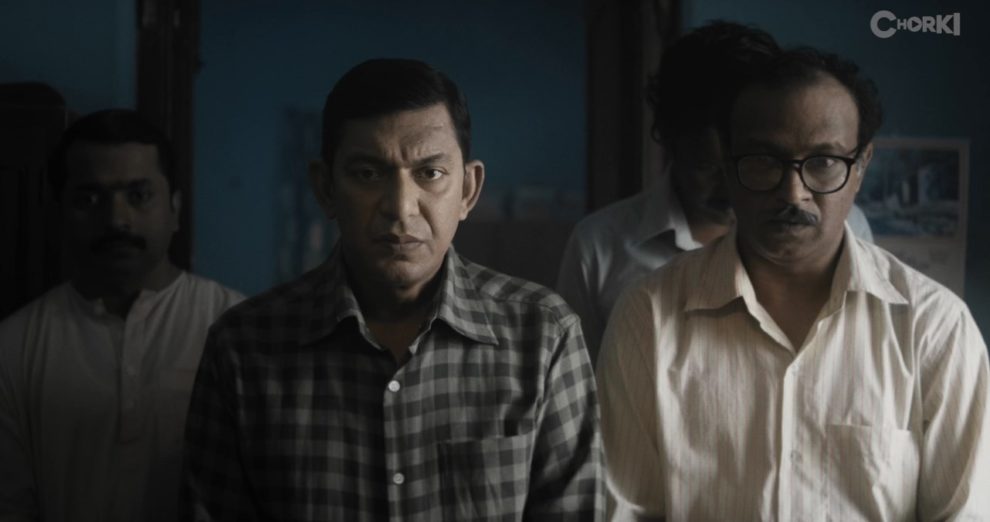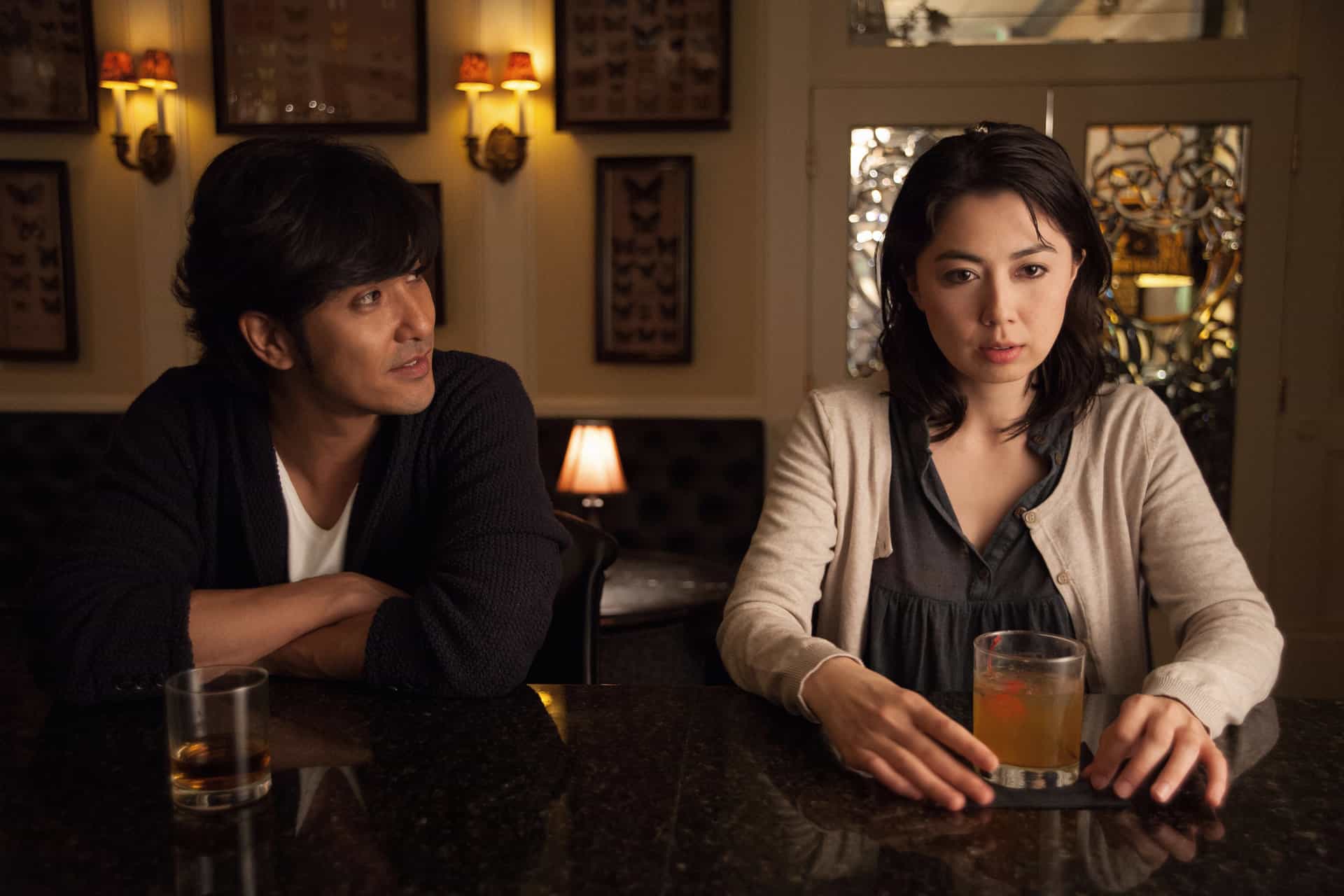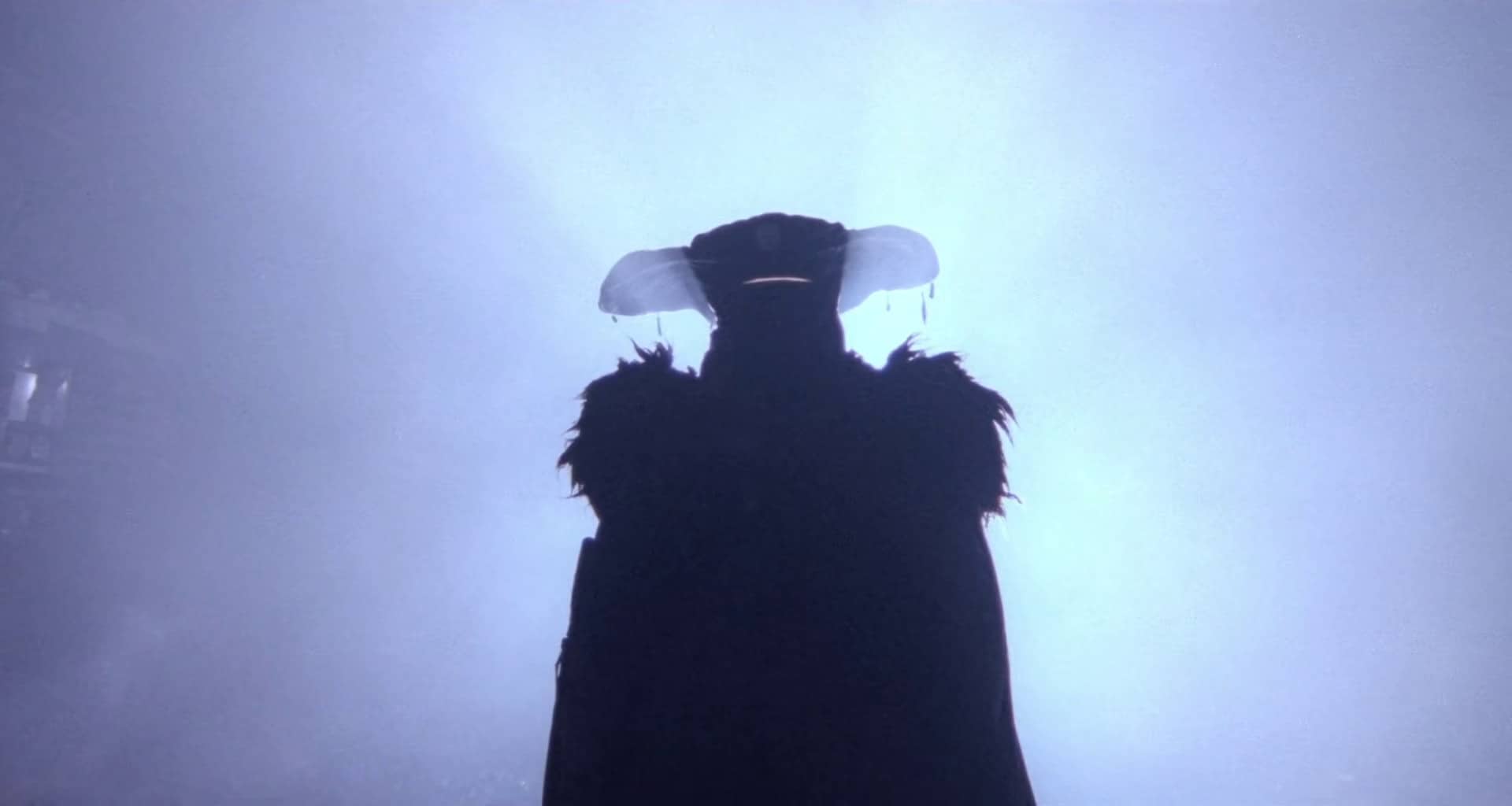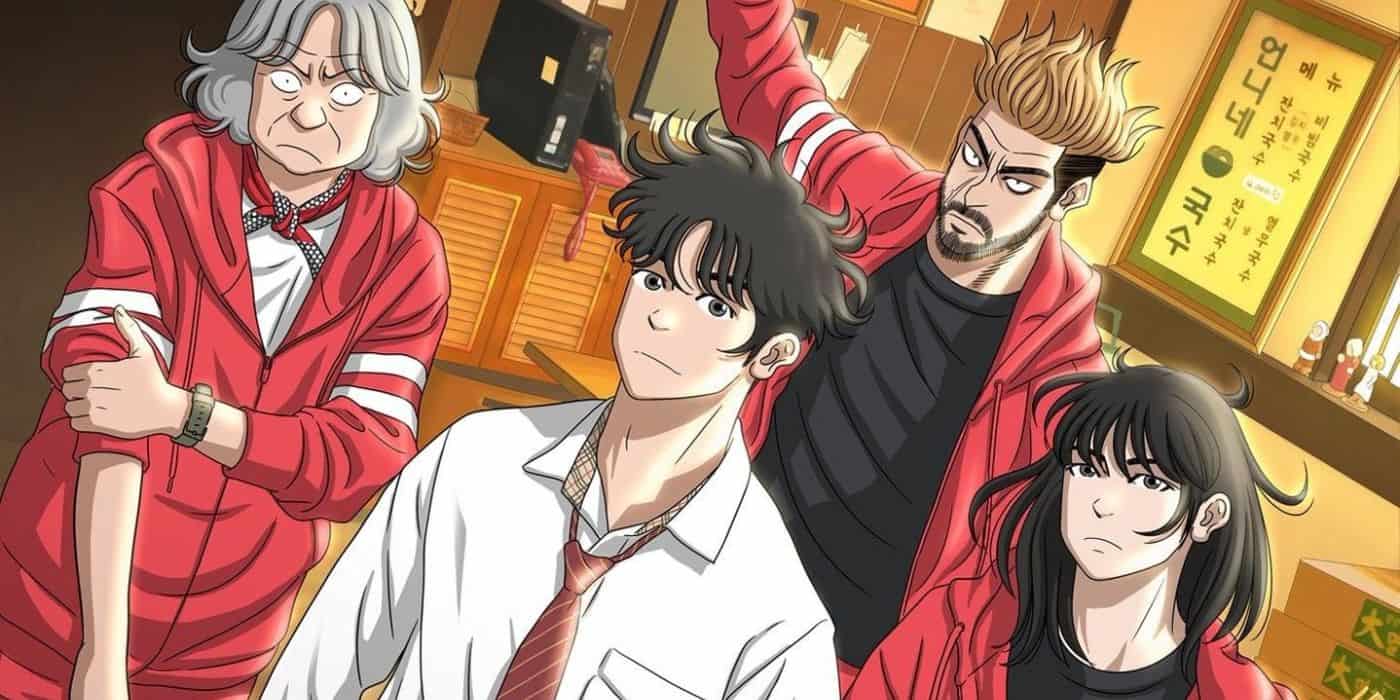Set before Bangladesh became an independent country, when it was still part of Pakistan, “Jaago Bahey” focuses on the issues Bangladeshian people faced at the time, through three episodes, which might as well be short movies, that highlight three different aspects.
“Jaago Bahey” is streaming on Chorki.com
The first episode is titled “Shobder Khowab” and deals with the issue of the language, by focusing on the working environment of an office in an imports-exports company. The middle-aged employees speak and write in Bengali, but their boss insists that all transactions in the office must take place in Urdu. The protagonist has real trouble learning the new language, even hiding his struggle from his wife, and the bullying ways of his boss do not help at all. Eventually, however, and as the employees get fired one by one, another agenda is revealed.
Siddiq Ahamed directs an episode that moves in a somewhat repetitive fashion, as the scenes from the office give their place to the ones in the protagonist's house, and vice versa. At the same time, however, the overall atmosphere is quite good, with Ahamed inducing the narrative with a sense of tension and constant danger, which derives from both the boss's attitude and the angst of the employees regarding their future in the company, in a setting where unemployment was the rule, and the music, which intensifies this approach quite elaborately. The comment about the suppression Bangladeshi people felt is well communicated as much as how much someone can endure before they snap.
The second episode is titled “Lights, Camera… Objection” and focuses on the movie industry at the same time, as two filmmakers are meeting with the members of the censorship board, who demand that a number of scenes they deem inappropriate or inflaming to the public be cut. The discussion ends up being on the purpose and function of cinema, but at some point, a military officer enters the setting and eventually takes over.
In a style that functions essentially as a stage play, with heavy dialogue and a single location, Saleh Sobhan Auneem highlights the issues artists faced at the time, through a discussion that touches philosophical, social and financial issues. Although not particularly cinematic, the episode benefits the most by the presence of Mostafa Monwar in the role of the persecuted director, while the overall dialogues are quite entertaining and intriguing in their complexity.
The third episode is titled “Bunker Boy” and takes place in a series of bunkers during the Bangladesh Liberation War and focuses on a Bengali boy who tries to scavenge from the bunkers, but ends up being the prisoner of a Baloch soldier, who forces him to take him to the Indian side.
In the most cinematic of the three episodes, particularly because it includes location shooting, Sukorno Shahed Dhiman directs a thriller essentially, as the agony about what is going to happen to the duo, and after a point, the question of if the boy has something else in his mind, result in a rather intriguing narrative. The night shots here are quite well done, with the same applying to the editing, which adds to the agony through the implementation of a fast pace.
As a whole, the quality of the series is definitely much above the average TV series, both in context and production values, with the second episode thriving on the first aspect and the third in the second, although the quality is evident in all three. Granted, the comments are rather one-sided to the point of polemic, as Pakistani are presented as the villains and the Bangladeshi the poor victims that eventually find the heroic strength to resist, but beyond this element, context-wise, the series is rather intriguing. Furthermore, the progress of the Bangladeshi movie industry is quite evident in “Jaago Bahey”, through the work of three filmmakers that are bound to “concern us” in the next few years.
















